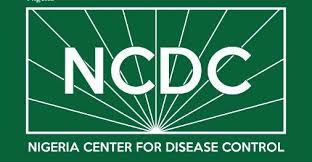The Nigeria Centre for Disease Control (NCDC) has outlined its health security agenda for 2024.
Its Director-General, Dr. Ifedayo Adetifa, while speaking in Abuja on Monday said that the importance of health security cannot be overemphasised, hence the need for an agenda.
He said that in line with President Bola Tinubu’s renewed hope agenda and the coordinating minister of health and social welfare’s four-point agenda, NCDC aligned itself with the fourth agenda, which focuses on health security.
He added that through strategic planning, robust partnerships, and commitment to excellence, the center is poised to play crucial roles in building a healthier and more resilient country this year and in the years to come.
On the agenda, he said that the agency aims to amplify its Mpox Research and the Lassa Fever Vaccine Development research.
The center will also work toward the Community-Based One Health Participatory and Empowerment Strategy for One Health Interventions (COPE) project, as well as the Media-EIS fellowship, among others.
“These endeavors aim to enhance preparedness and response strategies for priority diseases.
“Also, as we navigate the current dry season, historically associated with disease outbreaks like Lassa fever, Meningitis, and measles, Nigerians need to understand the dynamics of these diseases.
“This is because, Lassa fever season typically peaks around February/March, with observed increase in reported cases attributed to factors such as enhanced surveillance, heightened community awareness, and environmental challenges from climate change and human activities,” he said.
The NCDC boss said that as the nation continues to recover and rebuild from the devastating effects of the COVID-19 pandemic, the center recognises the need to reposition itself strategically.
He added that the agency recently launched a comprehensive five-year strategic plan aimed at leveraging on lessons and infrastructural
gains acquired during the pandemic.
“This plan serves as a roadmap for the NCDC to strengthen its capacity, optimize engagement with stakeholders, and ultimately protect the health of Nigerians,” he explained.
He underscored the agency’s commitment to being strategic and ambitious, while also emphasizing the need to scale with speed.
Additionally, he said, NCDC’s initiatives to strengthen collaborations with subnational stakeholders recognized the vital role of states and local government areas in ensuring health security.
He further explained that by examining these key areas, the agency would provide a comprehensive understanding of its approach to achieving its goals and contributing to the overall health of Nigerians.
He said that the center reflected on 2023 activities to extract valuable lessons for 2024, adding that interagency collaboration was key in responding to the outbreaks of Diphtheria, Anthrax, and Rabies in 2023.
He said “lessons from working with other MDAs using the One Health approach, particularly the Diphtheria Emergency Taskforce, underscored the importance of interagency collaboration, especially with our sister agency, the National Primary Health Care Development Agency (NPHCDA).
“Sharing data, information, and strategies proved vital in combating these diseases.
“Initiating the launch of the Zonal Reference Lab Projects was another highlight of the past year, marking the beginning of a series of six labs set to be rolled out by the year’s end.”


